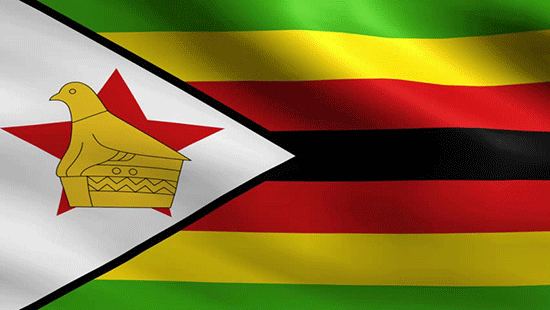The Zimbabwean government said it will ramp up research and eventually produce domestic hemp varieties as part of the country’s efforts to shore up income from a shrinking tobacco industry.
Hemp is among several specialty crops the government plans to advance, according to Frank Magama, CEO of the country’s Tobacco Research Board (TRB), who said his agency is also looking into the potential of chia and stevia. TRB will encourage Zimbabwe’s government-owned tobacco enterprises to adopt those plants as “economically sustainable alternative crops to tobacco.”
Tobacco makes up roughly 20% of the Zimbabwe’s exports, but contraction in the industry has contributed to stagnation which has beset the country’s economy for nearly two decades despite the African nation’s vast wealth of natural resources.
Long-term vision
“We have plans to produce industrial hemp seed in the long term after our Plant Breeding Division completes current projects on developing varieties suited to the Zimbabwean environment,” Magama told The Sunday Mail.
TRB’s Plant Breeding Division has already embarked on projects aimed at developing hemp varieties suited to Zimbabwe’s climate and soil conditions, with research ongoing at the Kutsaga Research Station in Harare, and two additional facilities in the municipalities of Banket and Makoholi in Masvingo province in the southeastern part of the country. TRB is also in discussions with training institutions regarding collaboration in industrial hemp genetics and breeding, Magama said.
Development plans
More broadly, the government is pushing TRB to play a key role in achieving its Vision 2030 economic development program, and through its National Development Strategy 1 (NDS 1), the Agriculture and Food Systems Transformation Strategy, the Tobacco Value Chain Transformation Plan, and the Zimbabwe Horticulture Recovery and Growth Plan, according to Magama.
The government is “ramping up research into the production of alternative crops, especially in the wake of a growing global anti-tobacco lobby and in line with World Health Organization framework convention on tobacco control,” Magama said.
Magama said the Tobacco Value Chain Transformation Plan ensures that tobacco will remain a strategic foreign currency earner for the country “for as long as its production is internationally acceptable.”
Step by step
Zimbabwe has shown steady progress with hemp over the past two years. Amended legislation earlier this year removed industrial hemp from the country’s list of dangerous drugs and set the defining line between marijuana and hemp at 1.0%. That THC limit puts Zimbabwe in the vanguard of nations around the world that have broken with the long-standing convention observed by most countries, which sets the THC limit for hemp at 0.3%.
Zimbabwe opened up the domestic market for CBD as a traditional herbal medicine in 2022, expanding upon previous laws allowing export only. Hemp also has the potential to become a significant food crop in Zimbabwe. While the government has said little about hempseed-based foods, the market for such products is growing, and the country’s hemp stakeholders could tap into this market domestically and through exports.
The government is providing further support to the hemp industries through Zimbabwe Industrial Hemp Trust (ZIHT), an initiative established to assist farmers in starting up hemp operations, and to explore export potential. Also, the Vision 2030 program identifies industrial hemp as a crop of interest, saying it has the potential to advance agricultural profitability and rural development.

